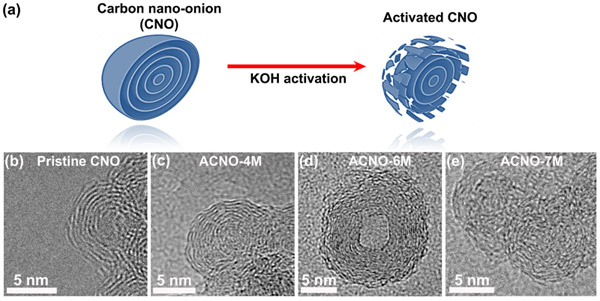Department of Electrical Engineering, University of Nebraska-Lincoln USA
Yong Feng Lu
ylu2@unl.edu

Abstract
Recent studies have demonstrated that carbon nano-onion (CNO) is a promising candidate for high-power supercapacitors due to the nonporous outer shell, which is easily accessible to electrolyte ions. However, the nonporous ion-accessible outer shells also limit the energy density of the CNOs, which requires large specific surface area. Introducing porosity to the outer shells of CNOs can effectively improve the specific surface area by exposing the inner shells to electrolytes. In this study, the electrochemical performance of supercapacitor electrodes based on CNOs is improved through the controlled introduction of porosity on the outer shells of CNOs by chemical activation. The capacitance of the activated CNOs is five times larger than the pristine ones with a measured power density of 153 kW/kg and an energy density of 8.5 Wh/kg in a 2 mol/l potassium nitrate electrolyte. The capacitance retention ratio of activated CNOs decreases slightly as the current density increases from 0.75 to 25 A/g. About 71% of initial capacitance (at 0.75 A/g) is preserved for activated CNOs at current densities up to 25 A/g.




